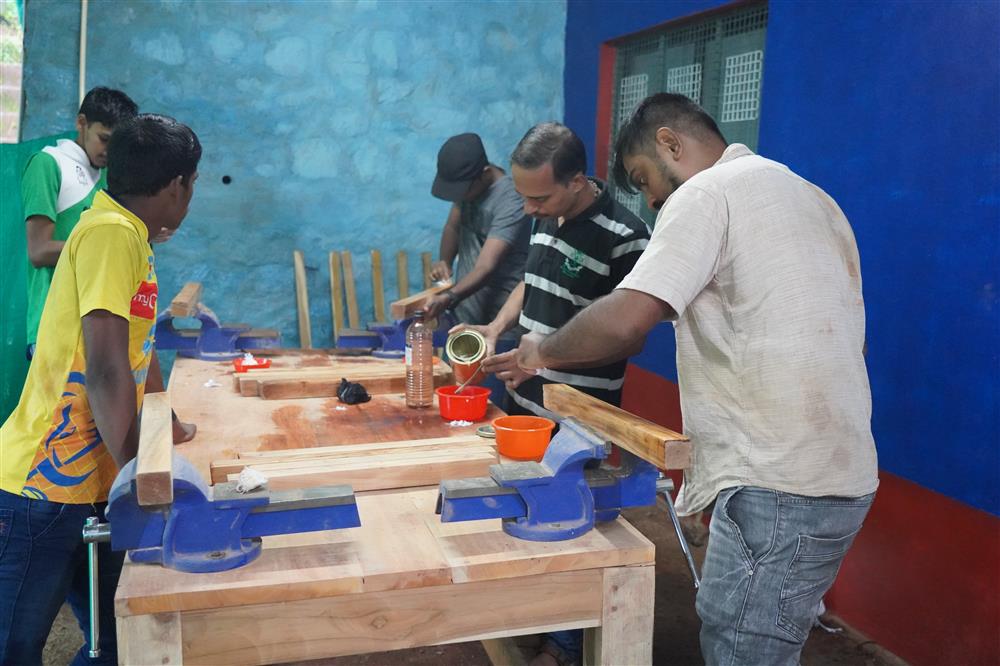Mainstreaming a self-employment programme for persons with disabilities with Indian-wide government-led institutes
- Solution
- Entrepreneurship Development Programme (EDP)
- Country of Implementation
- India
- Start Year
- 2013
- First published
- 03.12.2023

Solution details
“The training curriculum includes specific domains for women with disabilities.”
EnAble India – a leading Indian DPO based in Bengaluru – has developed the Entrepreneurship Development Programme (EDP) to teach skills and crafts to persons with disabilities that they may become self-employed and independent. The EDP collaborates with RSETIs (Rural Self Employment Training Institutes), which are government-led institutes to develop rural youth and women entrepreneurs. Started in 2013, the EDP programme has been adopted by all 562 RSETIs across India, more than 9,000 persons have been trained, and 80 per cent of those are now self-employed.
Problems Targeted
In rural India persons with disabilities lack livelihood training opportunities, preventing them from achieving self-employment and financial independence.
Solution, Innovation and Impact
The Entrepreneurship Development Program (EDP) provides tailored training on self-employment and entrepreneurship skills to persons with disabilities in rural India. Developed by EnAble India, a leading Indian DPO, the curriculum focuses on entrepreneurial competences, business plan preparation, market analysis, marketing, costing and pricing, leadership, inventory management, and many more business skills. The training curriculum includes specific domains for women with disabilities, such as beautician, tailoring, jute bag making, soft toys making, grocery shops, embroidery, floor mat weaving, bread making, and jewellery. The EDP collaborates with government-run Rural Self Employment Training Institutes (RSETIs), enabling integration into mainstream skills programmes. This training model – which follows a clearly defined order of modules, from setting up village committees and sourcing to post-training and post-placement support, has achieved scale, and has been adopted by all 562 RSETIs across India since 2013. By 2023 over 9,000 persons with disabilities have been trained, 40 per cent among them women. In addition, 51 grassroots organizations are implementing EDP, and every day four more persons with disabilities are trained, with three of them becoming entrepreneurs.
Funding, Outlook and Transferability
The EDP is mainly funded by the corporate social responsibility budgets of Indian companies, which by law must donate 2 per cent of their revenues every year to social causes, and by philanthropic money. In 2023 the total budget for EDP was appx $270,000. The programme’s future aims include creating tens of thousands more rural entrepreneurs with disabilities and building a sustainable ecosystem for their livelihood. A programme called Swashakti has been established for that purpose, which uses the EDP model in cooperation with rural NGOs. (Awardee 2024)
Media
Pictures
Related information
- Connections
- 1
-
People